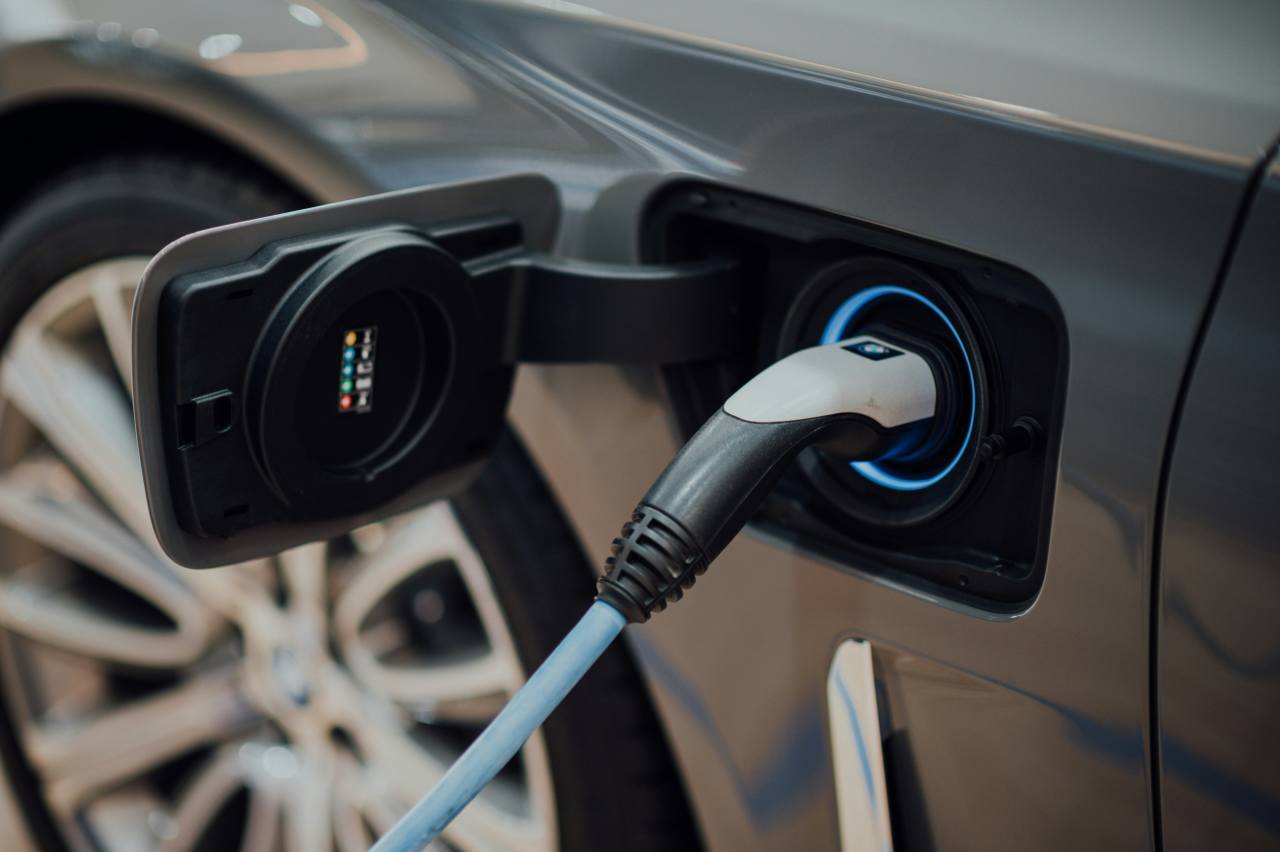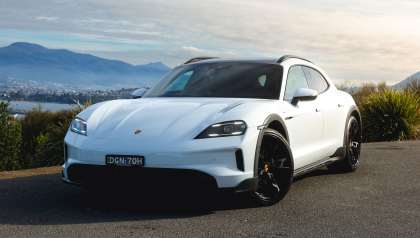The third film in a trilogy is often the hardest to get right - Return of the Jedi is not as acclaimed as The Empire Strikes Back.The Godfather III is nowhere near as revered as its predecessors.
Which I mention because we’ve come to the end of our Lotus trilogy, as regular readers may have noticed in recent weeks we have tested the Emira and Eletre.
This time we’re driving the Emeya, the third and final member of the brand’s new line-up (at least for now) that manages to combine elements of both its stablemates.
The Emeya is Lotus’ direct rival to the Audi e-tron GT and Porsche Taycan, an electric sports sedan that takes elements of the Emira’s dynamics and pairs it with the Eletre’s powertrain and style.
So let’s find out how this final installment of the Lotus trilogy has a happy ending or not…
Price and features – Does it represent good value for the price? What features does it come with?
7 / 10
There are three models in the sedan’s line-up - Emeya, Emeya S and Emeya R. We tested the middle of the range model, which is priced from $209,990 (plus on-road costs). The range begins at $189,990, while the Emeya R crowns the line-up at nearly $259,990.

For comparison, the Porsche Taycan RWD is priced from $175,100 and the Taycan 4S from $216,300, while Audi’s e-tron GT is priced from $181,784 and the RS model from just over $250,484. Which means the Emeya is certainly in the same ballpark as its key rivals, giving the brand a good chance to compete against the more established pair.
Befitting Lotus’ new premium era, standard equipment is a long list of luxuries and technology, including matrix LED headlights, 20-inch alloy wheels, air suspension, keyless entry and start, a key card with NFC (Near Field Communication) function, four-zone climate control, eight-way power adjustable front seats and heated front seats.

There’s also a KEF 1380-watt premium sound system with 15 speakers plus a wireless charging pad as well as a 12.6-inch digital instrument panel and a 15.10-inch OLED central multimedia screen.
Stepping up to the Emeya S adds 21-inch wheels, lightweight brake discs with six-piston calipers, ambient light and sports pedals. While the Emeya R gets a unique powertrain, its own 21-inch alloys, 'Track Mode', active roll bar and rear-wheel steering.
Design – Is there anything interesting about its design?
7 / 10
It may be a contemporary electric sedan, but the latest Lotus design language does have a clear visual connection to the brand’s most iconic model - the Esprit. The angular lines create a wedge-like silhouette that harks back to the 1980s Esprit, albeit with a more modern appearance.
It does also have some less glamorous angles, especially around the rear three-quarter but it certainly doesn’t fall into the trap of having the non-descript, aerodynamic shape that some EVs can.
Inside the cabin is very luxurious and premium, taking the same styling from the Eletre and carrying it over. That means a very slim instrument display and a very large central screen for the multimedia systems.
The overall level of fit and finish is impressive and gives the Emeya an unmistakably high-end feeling.
Practicality – How practical is its space and tech inside?
7 / 10
Even though the Emeya carries over much of the same interior design as the Eletre SUV, it’s still not the most practical sedan.
There are two cupholders in the centre console, a small shelf underneath the wireless smartphone charging pad and a centre console box, but aside from that, there’s no other significant storage space in the front.
The door pockets are quite narrow and while very plush, the cabin feels more like a sports car than a luxury limo.
The multimedia system, which runs through a 15.1-inch HD OLED screen looks very slick and is fairly easy to use, but does take a couple of days to get comfortable with it completely.
Where the Emeya impresses inside is with its space, the front seats are comfortable and offer good support, but in the back there’s a generous amount of room.

This is thanks to the length of the Emeya, which is why it looks a little awkward from some angles externally but it has allowed Lotus to create more internal room.
The Emeya is nearly 200mm longer than the Taycan overall and in its wheelbase, creating more legroom in the rear for passengers.
Those in the back also get access to a small screen to control the air-conditioning, recline their seats and even adjust the glass roof between opaque and clear. There’s also two USB-C ports and a pair of cupholders in the central armrest.
Under the bonnet – What are the key stats for its motor?
9 / 10
The switch to electrification means Lotus has been able to share the same powertrains from the Eletre with the Emeya. Not that it’s a bad thing from a performance perspective, with the Emeya and Emeya S dual motors making 450kW and 710Nm.

The Emeya R gets more powerful motors - producing a seriously impressive 675kW and 985Nm - and a two-speed transmission for faster acceleration.
Lotus claims the Emeya and Emeya S can run 0-100km/h in a rapid 4.1 seconds, while the Emeya R takes just 2.7 seconds. Top speed for the Emeya is 250km/h, while the R is slightly faster at 256km/h.
Efficiency – What is its driving range? What is its charging time?
7 / 10
All three Emeya variants share the same 102kWh lithium-ion battery and 800-volt architecture. Lotus claims the entry-grade and Emeya S models have a WLTP range of between 500-610km, while the more powerful R can manage between 435-485km. Thanks to its lower, sleeker body that’s approximately 75km and 35km more than the equivalent Eletre.
Lotus also claims the Emeya is one of the fastest charging EVs on the market today, capable of going from 10 to 80 per cent capacity in just 14 minutes when using a 400kW DC fast charger.
Driving – What's it like to drive?
8 / 10
When I drove the Eletre I was struck by the challenges of making modern electric vehicles feel unique and special across each brand. There is a ‘generic’ level of performance that makes it hard to tell the difference between a Lotus or BMW or another EV.
That’s noticeably less of an issue with the Emeya, which may be bigger and heavier than the brand’s former sports cars, but it does have a surprisingly agile and responsive chassis when you get it out on the open road.

Lotus may be leaning on Geely for its EV knowledge, but when it comes to ride and handling, the British brand has a deep well of talent and experience to draw from.
Does it feel as agile and dynamic as the Emira or an Exige? Of course not, but it is a genuinely enjoyable and engaging car to drive. Certainly compared to its direct rivals, the Emeya has no trouble holding its own on a challenging section of winding road.
Safety – What safety equipment is fitted? What is its safety rating?
8 / 10
Safety is another area where Lotus has made dramatic changes as part of its luxurious makeover, adding a huge amount of the latest technology. As such, all Australian Emeyas are equipped with 'Lotus Pilot Pack' which includes adaptive cruise control, autonomous emergency braking, rear cross-traffic alert, blind-spot monitoring, driver monitoring and traffic sign information, as well as front park assist and rear park assist, to help you get into your spot.
There’s also the optional Highway Assist Pack, which includes four LIDAR while also using cameras and other sensors to allow for mild-autonomous driving capability; which is a dramatic change for a brand that was once only focused on making the driver feel fully engaged.
Neither ANCAP nor Euro NCAP have tested the Emeya, as the safety authority rarely tests such expensive and niche models.
Ownership – What warranty is offered? What are its service intervals? What are its running costs?
6 / 10
Lotus Australia doesn’t offer capped price servicing, so you’ll need to discuss the on-going maintenance costs for your Emeya with your local dealer. The recommended service interval is 24 months or 30,000km.
However, every new Lotus model is covered by a five-year/150,000km warranty for the car, with eight-year/200,000km cover for the drive battery.
Verdict
As both the conclusion to this Lotus trilogy, but also a car in its own right, the Emeya earns a positive review. It was fitting that I happened to drive the brand’s three newest models in the order I did - Emira, Eletre, Emeya - because it turned out to be the most interesting way to experience them.
The Emira is the swansong for Lotus as we knew it, while also giving a hint of what is to come, while the Eletre rockets into a dramatically different realm. But the Emeya manages to combine elements of both - the dynamic edge from the Emira with the luxurious and electric influence of the Eletre - resulting in a very likeable modern sports sedan.




















.jpg)
.jpg)
.jpg)
.jpg)
.jpg)
.jpg)
.png)
.jpg)
.png)
.jpg)
.jpg)


.jpg)